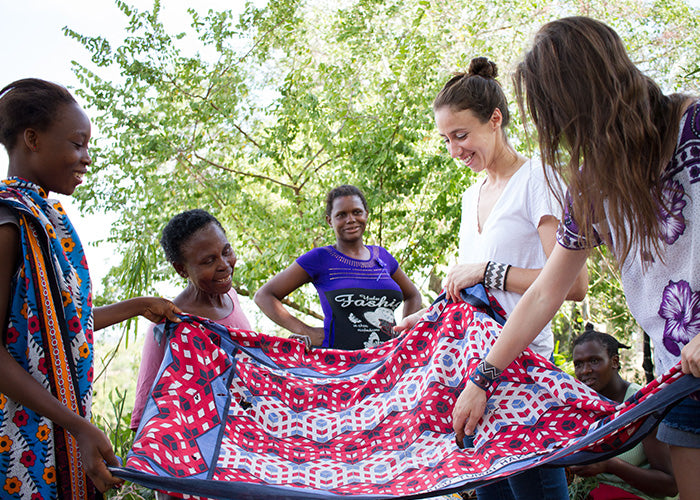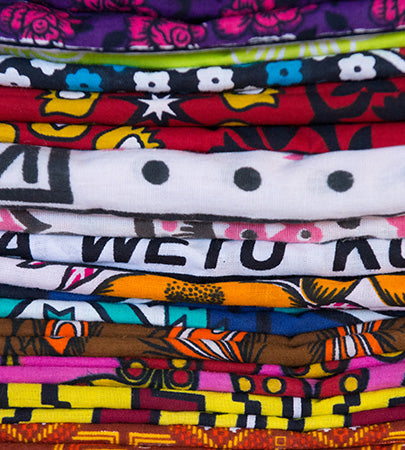About

DUKA : Swahili for SHOP
Because stimulating the economy is the best way to create development.
DUKA believes that a major shift in the way fashion is produced and consumed is necessary for the healthy future of people and planet. DUKA’s identity is deeply rooted in the history and design of traditional East African textiles and the future of globally-minded decisions.
Our Kangas
Our Kangas have carried babies, held baskets and shaded women from the African sun. Each Kanga is hand-patched with remnants of other Kangas allowing their lifecycle to continue with you.
We employ a network of women who reach deep into their village communities to seek out and purchase our Kangas. Both buyers and sellers earn money on each Kanga purchased, providing a job opportunity for women who live in an area with high poverty and unemployment.
Wear your Kanga as a scarf, or wrap it around your waist or head in traditional fashion.
While each Kanga is one of a kind, Kangas traditionally come as a 'Doti' or pair. Sometimes, we are fortunate to receive both sides of the pair, or a very small group of one design, as women in the family often wear the same Kanga to weddings, funerals or other special occasions.
By purchasing a Kanga, you are connecting yourself to the woman in Kenya who holds the other piece of the pair.

Duka & Manufacturing
Ethical fashion is sourced, designed and manufactured using sustainable business practices that meet social and environmental standards such as fair wages and responsible sourcing.
Based in Coastal Kenya, DUKA aims to produce textile goods for brands seeking to manufacture their product in facilities that meet ethical fashion standards.
We are actively training local tailors to meet standard quality levels and our seams tell their story, the continuation of which we believe consumers will embrace through purchase & wear.
Fate is never uniform
Swahili
The Kanga, loved in East Africa for its patterns, colors and versatility is also, historically, a means of communication through the proverbs printed along the bottom border.
These proverbs communicate everything from personal feelings to political, social or religious axioms and often express sentiments the wearer chooses not to verbalize directly.
These social fabrics are given as gifts with messages of thanks or love, they are worn with messages of discontent to political rallies, and they may be worn as a warning to a friend or a neighbor with whom the wearer bears a grudge.
The proverbs are often ambiguous and have as many translations and meanings as they do people who translate them.
Kilifi, Kenya
DUKA’s Kenyan home is in Kilifi, a growing Coastal town centered around it’s namesake creek, which leads into the Indian ocean.
Traditional agriculture is changing, but maize, cashews, mangos, papayas, and coconuts are all staples, and grown widely, marking the tropical landscape. Made up of a diverse population, Kilifi is predominantly Swahili and people of the Giriama tribe, but also draws people from around Kenya and the world to it’s university, world renowned medical research center, international school, agro-forestry business, and growing community of small business owners.
There is a strong focus on the environment, gender equality, the promotion of girl’s education, and general social welfare, all values that are imbedded in DUKA’s mission and which make Kilifi an ideal place to base our manufacturing.
Photo by @bikowesa
;)